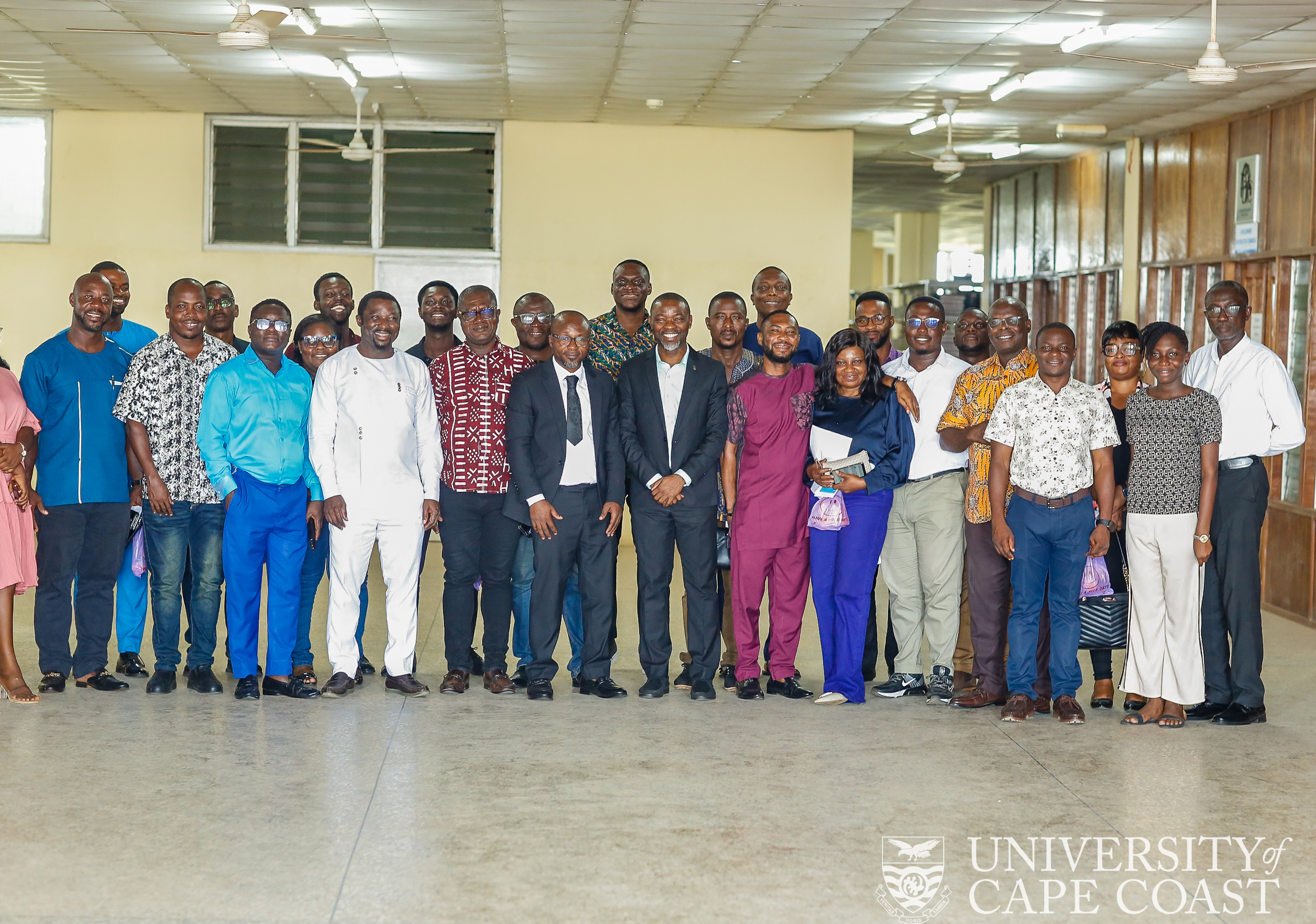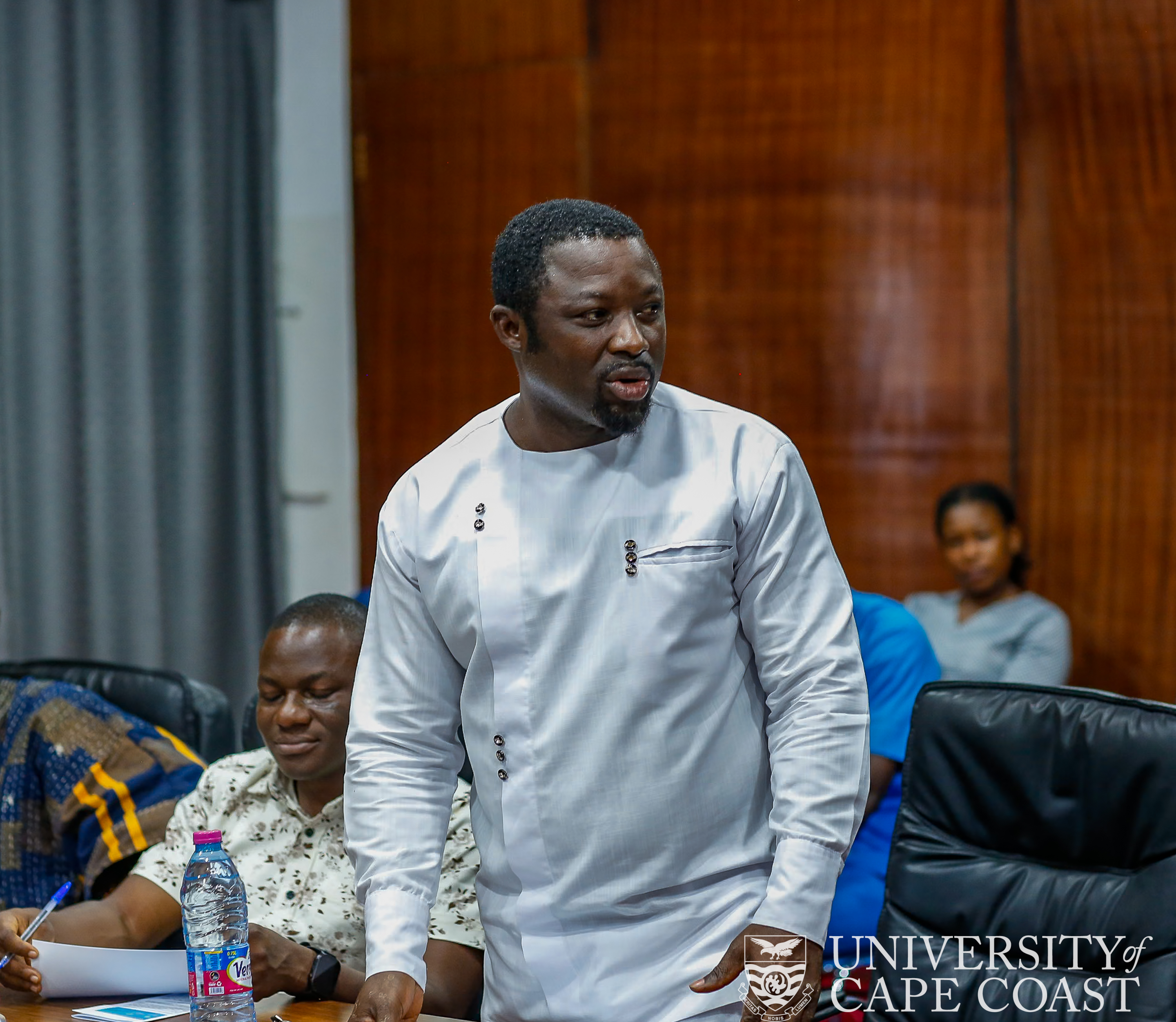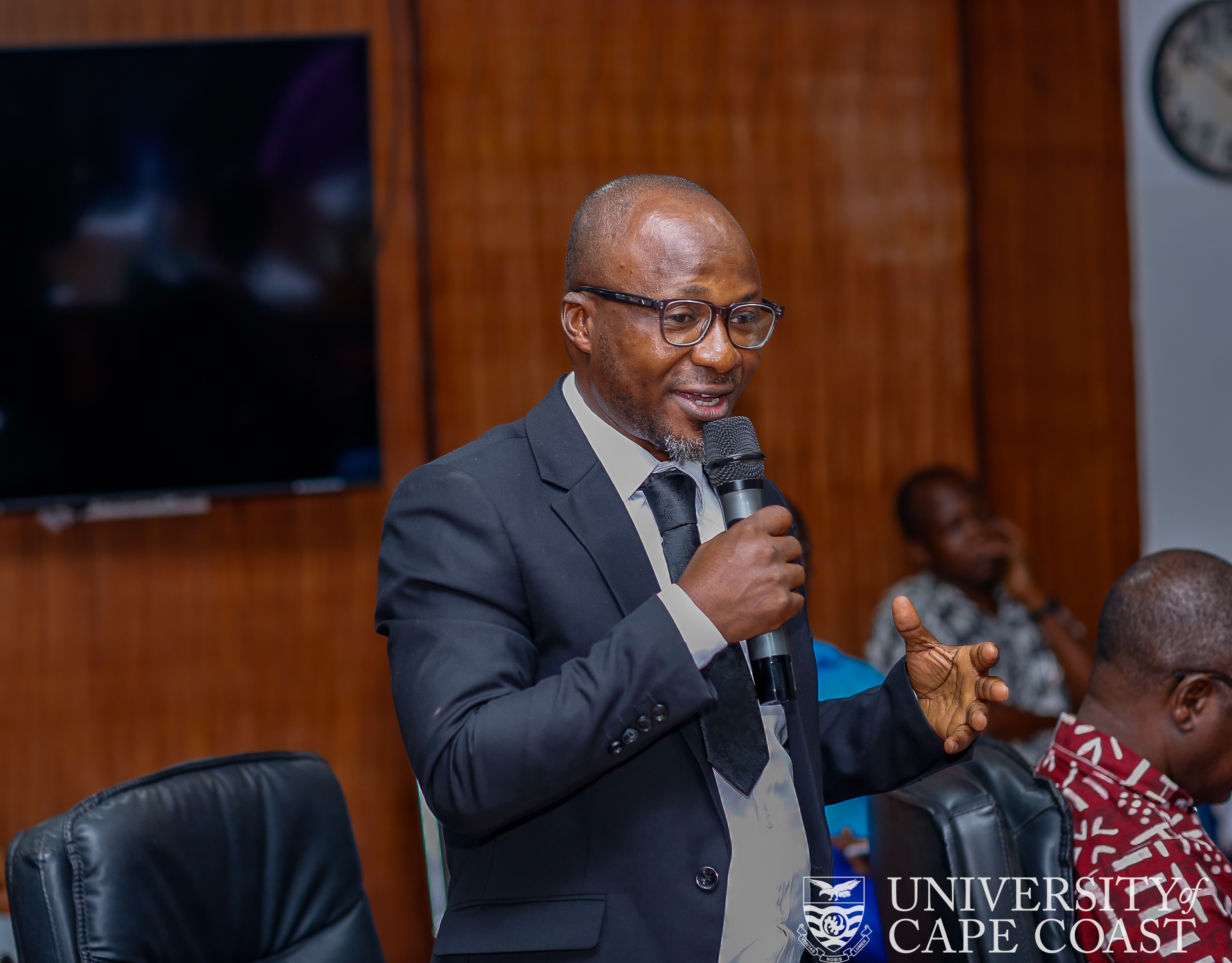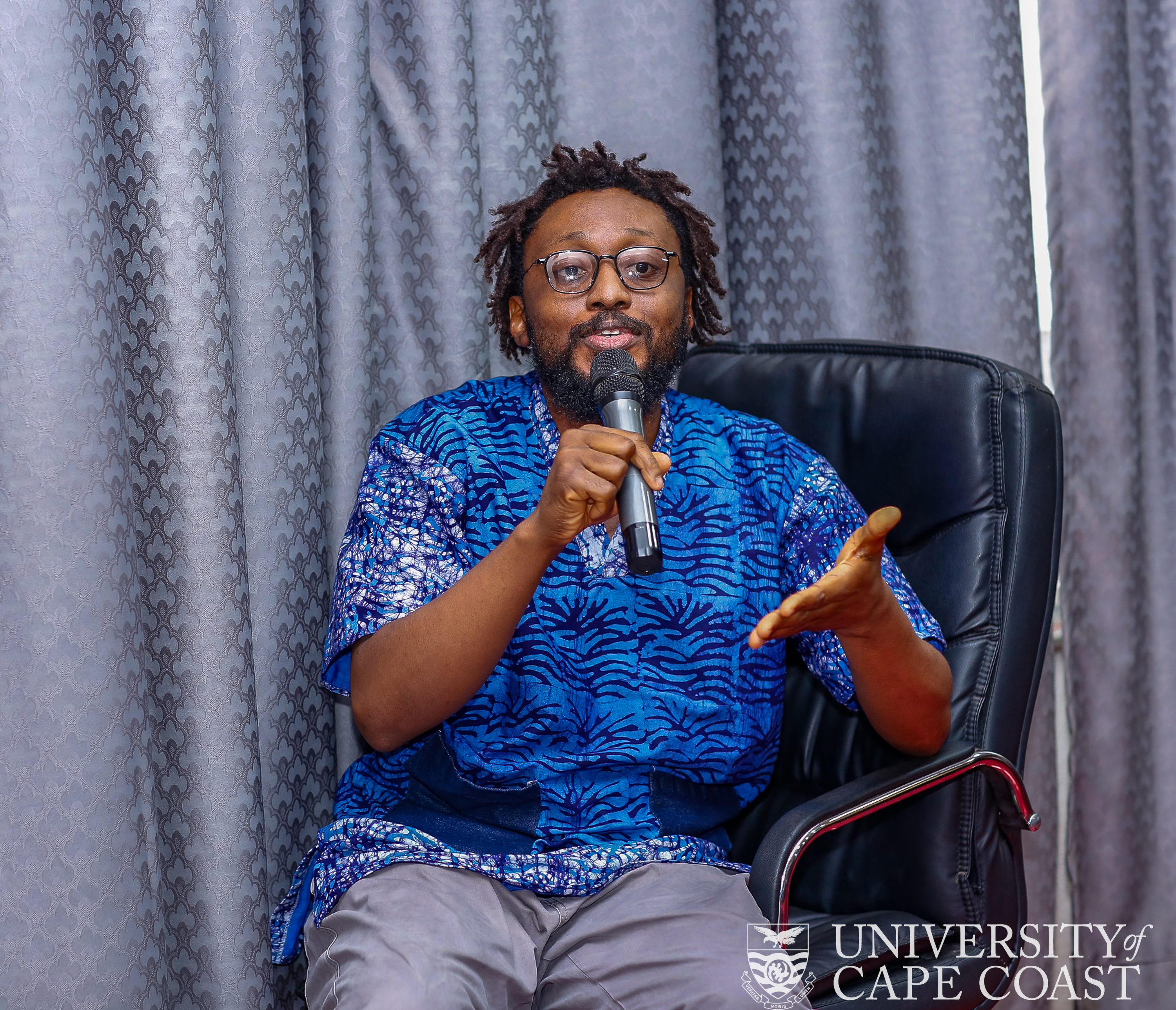The Department of Classics and Philosophy of the University of Cape Coast (UCC) has organised an academic engagement on the theme “AI Collective: Knowledge and Innovation”.
It brought together faculty, scholars, and students to examine the growing influence of Artificial Intelligence (AI) in higher education.
Prof. Kwabena Safo Safo-Kantanka
Delivering the opening remarks, the Dean of the Faculty of Arts, Prof. Kwabena Safo Safo-Kantanka, stressed the relevance of the dialogue in the contemporary academic landscape.
“It is a timely discussion because this is one of the crucial issues of our time. The lessons that you will draw out of this discussion will be a great one,” he stated.
He underscored the need for academic institutions to welcome and embrace AI and other emerging technologies.
Prof. Safo-Kantanka indicated that the Faculty would continue to work with all the relevant stakeholders including the university management to reap the full benefits of AI and to drive the country’s progress.
Prof. Husein Inusah
The Head of Department (HOD) of Classics and Philosophy, Prof. Husein Inusah, stressed the need for sustained scholarly engagement on AI across disciplines.
He remarked, “We have various colleagues working on AI and it is important that we have this discussion.”
Prof. Inusah noted, “This conference is significant because of the various issues surrounding AI.”
In his address, the Provost of the College of Humanities and Legal Studies, Prof. Daniel Agyapong, announced that UCC had initiated steps to craft a university-wide AI policy.
A participant in the workshop asking a question at the workshop
Prof. Agyapong commented, “I strongly disagree that AI makes students lazy. We need to change our attitudes towards AI.”
He continued: “Lecturers who think students should not use AI should have a change of mind “Let us be open to unlearn and re-learn to know new things.”
The programme focused on these thematic areas AI and Academic Integrity, AI, Critical Thinking and Problem-Solving and AI Ethics, Governance and Policy.
Panelists for the plenary session included Prof. Peter K. T. Grant, Prof. Eric Debrah Otchere, and Dr. Isaac Nuokyaa-Ire Mwinlaaru




